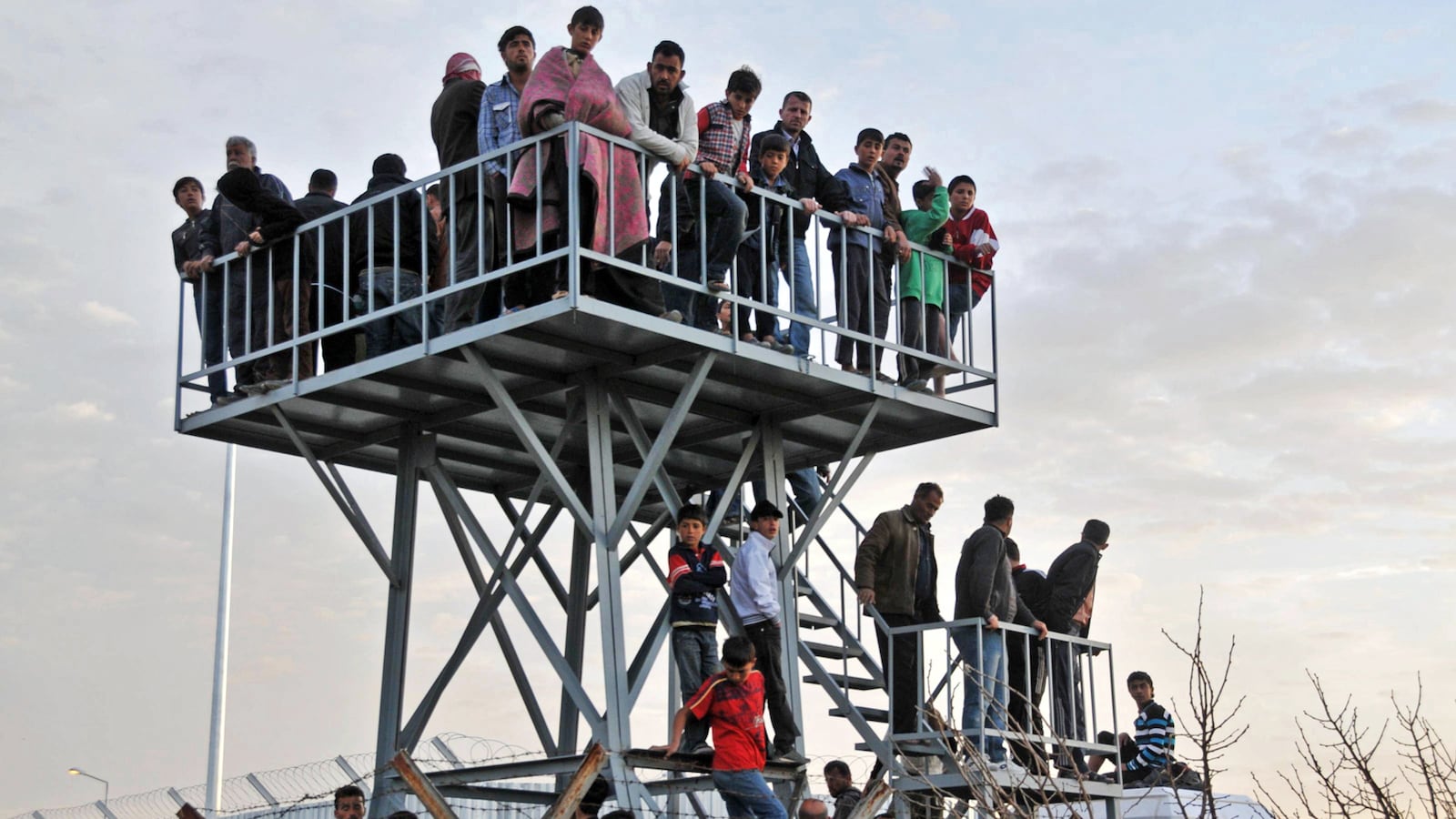Even before dawn broke on the Syrian border town of Azaz, Aid Sayed Ahmad was awake, wide-eyed. Standing outside of his family’s home, he listened to the daunting hum of helicopters, followed by live rounds from Syrian armed forces. Azaz was under attack. A bullet pierced his leg and he fell to the ground, forcing him to crawl to safety.
On the Turkish side of the Syrian-Turkish border, Syrians protested the attack from within the Kilis refugee camp. As they watched the Syrian armed forces shell the village, unable to aid their family and neighbors, many refugees headed toward the border they had so recently crossed, chanting "Allahu akbar," or "God is great."
Reports surfaced Monday that the conflict in Azaz began at 4 a.m., as opposition fighters attacked Syrian forces at the Salameh border crossing. Bullets were fired into the Kilis camp as opposition fighters tried to flee to the Turkish border. The clashes left three dead and 21 injured, the latter included a Turkish policeman and a Turkish translator.
News reached the Yayladagi refugee camp midday. Nearly all the refugees within the camp gathered to protest against the violence in Kilis. Turkish officials set up checkpoints on the border to thwart protests in other areas, as tensions are fluid between the eight camps on the Syrian border of Turkey.
The violence comes hours before the U.N.-sanctioned troop withdrawal and three days before the Syrian ceasefire. But Turkey’s deputy foreign minister said Monday that the April 10 deadline for the Syrian government and opposition forces to withdraw from cities was void. New discussions regarding the peace deal will begin on Tuesday, the same day U.N. and Arab League envoy Kofi Annan is set to visit Turkish refugee camps in Hatay Province. Annan will observe the state of the camps and the impending refugee crisis.

According to official figures, the number of Syrians in Turkey on Monday dropped to 24,246 from 24,324, but the drop comes after more than 2,500 refugees entered Turkey on Thursday. Turkish officials are redistibuting refugees before Annan’s visit. Even during the violence Monday, officials transferred five buses filled with refugees from the Reyhanli camp to Kilis.
Several sources from within the Kilis camp claim the Turkish officials on the border did not fire their weapons, but rather, tried to protect themselves. Now, Ahmad lies on a hospital bed in Kilis after his friend carried him across the border. For him, there was no choice but to cross.
“If I went to a Syrian hospital, they would have killed me,” he said. His fears are similar to many Syrians who do not support the Assad regime. They find no comfort in living in Syria, and after the recent skirmishes in Turkey, find no comfort living in a refugee camp.
With bloodied gauze wrapped around his leg, he clutches a bullet-torn cigarette pack that had been in his breast pocket during the attack. Cigarette papers litter his bed, reminding him just how lucky he is to survive. “Allah,” he says, pointing to the sky and smiling. He knows God saved him for a reason—to go fight in the Free Syrian Army (FSA), he says.
While Ahmad wasn’t part of the FSA before Monday’s attack, he now says, without a doubt, he will join. His eagerness to join the rebel cause is felt throughout many of Turkey’s camps. But while there are willing Syrian men, there is also a severe lack of weapons.
One FSA soldier within the Yayladagi refugee camp said he has been in and out of the camps several times, and on each journey back to Syria he fears he will not have the adequate weapons he needs to fend off Assad’s forces. He arrived 10 days ago from his most recent foray, but this time he has no weapon with him. He hid it in the foothills. He will go back and retrieve it soon, he says, as he anticipates the violence to get worse in the coming days.







